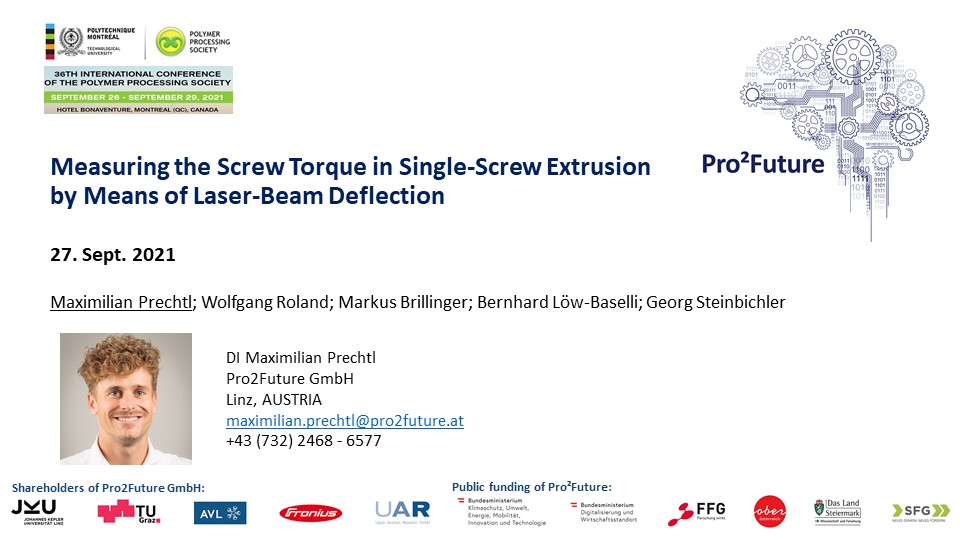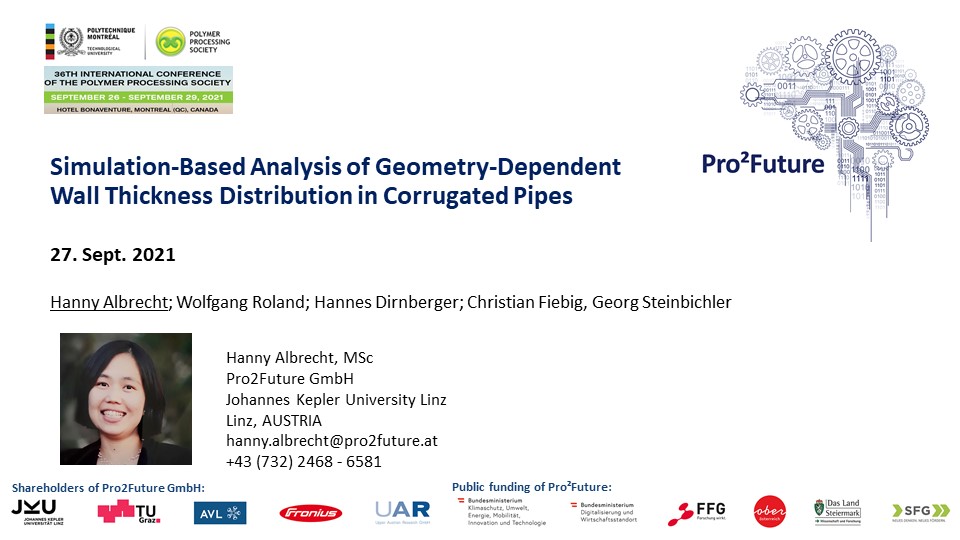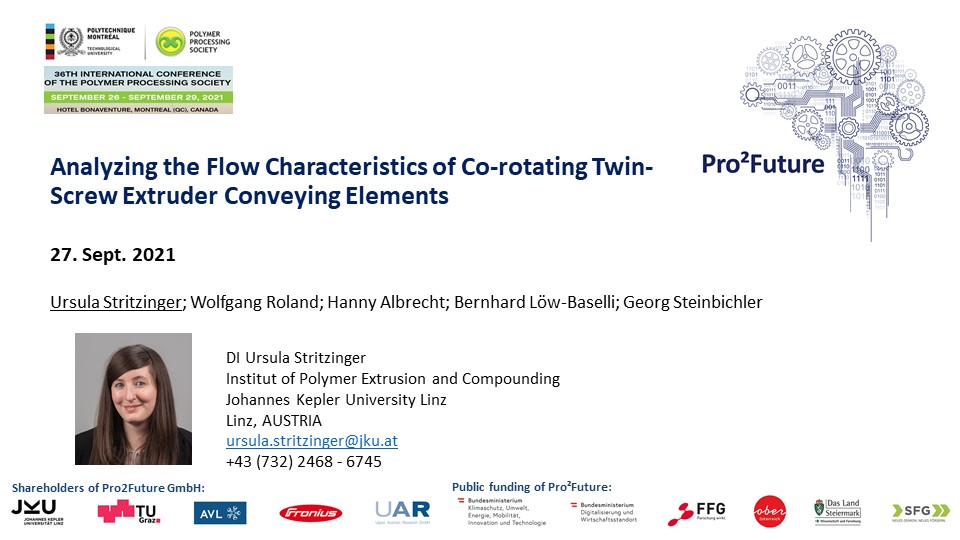Maximilian Prechtl presented research results of Area 4.2, Cognitive Production Systems, from the strategic project E-Manager 1.2 at the 36th International Conference of the Polymer Processing Society (PPS). The conference takes place from Sept. 26th to Sept. 29th in Montreal (Canada), and fosters discussions on recent developments and research activities in the fields of polymer science and polymer processing for the worldwide community. PPS is open to engineers and scientists from research and industry offering the possibility to discuss on formulations, processing and shaping operations applied to polymeric systems.
His work titled “Measuring the Screw Torque in Single-Screw Extrusion by Means of Laser-Beam Deflection” proposes a novel measuring approach determining the screw torque by means of laser-beam deflection. First, limitations of existing measuring approaches for measuring the length-based screw torques profile are highlighted. Next, the novel measuring approach and a first prototype are presented. Experiments show promising results and confirmed the possibility to determining the length-based screw torque. Hence, it will enable profound investigations to gain deeper insights into the physical processes in single-screw extrusion.

Hanny Albrecht presented research results of Area 4.2, Cognitive Production Systems, from the project 4.2.1_4 Smart Corrugated Pipe Production at the 36th International Conference of the Polymer Processing Society (PPS). The conference takes place from Sept. 26th to Sept. 29th in Montreal (Canada), and fosters discussions on recent developments and research activities in the fields of polymer science and polymer processing for the worldwide community. PPS is open to engineers and scientists from research and industry offering the possibility to discuss on formulations, processing and shaping operations applied to polymeric systems.
The work titled “Simulation-Based Analysis of Geometry-Dependent Wall Thickness Distribution in Corrugated Pipes” investigates the wall-thickness distribution of corrugated pipes as function of the mold geometry. Therefore, a comprehensive parametrically driven FEM design study of the blow-molding process was conducted, the significant influencing parameters identified and its influence on the corrugated pipe geometry analyzed. The key findings are crucial for the mold and pipe design with respect to optimized wall thickness distribution for high-quality pipes and low material input.

Ursula Stritzinger presented research results of Area 4.2, Cognitive Production Systems, from the project 4.2.1_2 Smart Compounding at the 36th International Conference of the Polymer Processing Society (PPS). The conference takes place from Sept. 26th to Sept. 29th in Montreal (Canada), and fosters discussions on recent developments and research activities in the fields of polymer science and polymer processing for the worldwide community. PPS is open to engineers and scientists from research and industry offering the possibility to discuss on formulations, processing and shaping operations applied to polymeric systems.
The work titled “Analyzing the Flow Characteristics of Co-rotating Twin-Screw Extruder Conveying Elements” analyzes the conveying and power parameters of double-flighted fully-intermeshing co-rotating twin-screw extruders. The characteristic influencing parameters were identified using the theory of similarity, being the basis for a parametrically driven 3D CFD design study. The conveying and power parameters were evaluated using the calculated flow profiles including the complete three-dimensional flow geometry including the influence of the screw and nip clearances.

